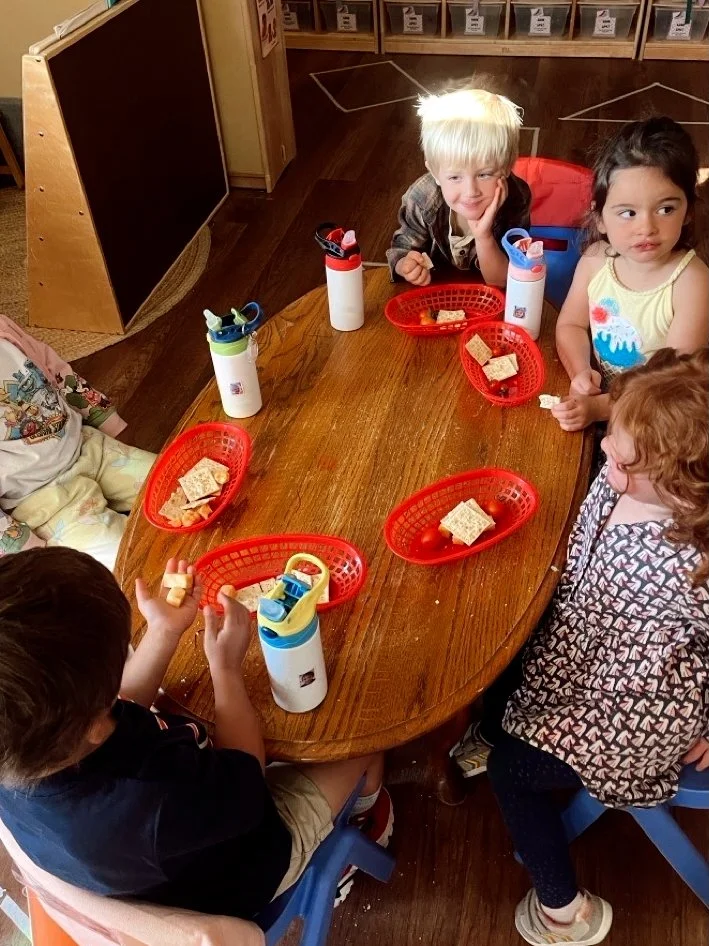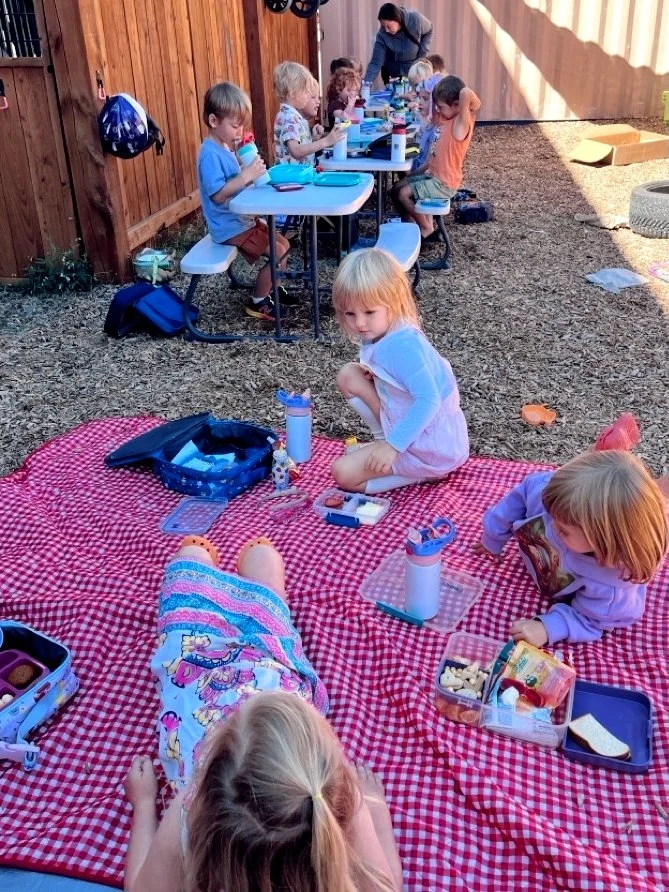Nutrition & Intuitive Eating
Food is more than nutrition — it’s connection, comfort, and community. We approach every snack and mealtime as a learning opportunity that supports growth, mindfulness, and belonging.
What We Provide
Snacks: Two daily snacks are prepared with fresh, often organic ingredients. Children are
invited to help with simple preparation and serve themselves at snack stations, building independence, confidence, and a sense of pride.
We intentionally offer snack early in the day, recognizing that some children may arrive without breakfast—or may not have been ready to eat yet. Food fuels focus, energy, and emotional regulation, and we want every child to start the day feeling nourished and ready to learn. Throughout the day, children know that food is always available if they feel hungry later, supporting trust and intuitive eating.
Hydration: Each child receives a school water bottle to encourage steady hydration throughout the day. Water bottles travel with the children wherever they go, and regular water breaks are thoughtfully built into the daily routine.
Menus: A rotating snack menu is shared with families monthly for transparency. While we don’t have a full kitchen, we get creative — offering snacks as fresh and organic as possible, such as yogurt with berries and granola or crackers, cheese, and a clementine. Lunches are always accessible if a child is hungry outside of snack times, and children may save unfinished snacks to return to later.
Packed Lunches from Home: Children bring a single-container lunch from home. We encourage simple, nourishing meals that sustain active play and learning. Families are invited to share preferences, cultural traditions, and allergy needs so we can best support each child.
Our Philosophy
Intuitive Eating: Children learn to listen to their bodies — eating when hungry, pausing when full, and exploring new foods without pressure. Our teachers receive ongoing training from our intuitive eating coach, helping us create a culture of respect, curiosity, and body awareness.
Mealtime Culture: Whenever possible, we eat family-style to foster community, communication, and connection. Teachers eat alongside students, modeling curiosity and conversation — asking questions, encouraging turn-taking, and helping children make connections between food, feelings, and friendship. Meals are unhurried moments to slow down, reflect, and check in with our bodies before moving on. We often enjoy meals outdoors, turning lunchtime into joyful picnics that celebrate nature and togetherness.
Family Partnership: We collaborate with families to honor dietary needs, cultural values, and food traditions, ensuring every child feels seen and supported.
Why It Matters
Our approach to food nurtures the whole child — mind, body, and heart.
Through shared meals and mindful eating practices, children:
Develop lifelong healthy habits
Build confidence and independence
Experience food as comfort, curiosity, and community — never pressure
Intuitive Eating Resources
We encourage families to explore these trusted resources to learn more about intuitive eating in early childhood:
The Importance of Teaching Intuitive Eating to Children — UConn KIDS
A research-based overview of how intuitive eating supports children’s emotional and physical development.
A Dietitian Explains Intuitive Eating for Kids — Healthline
A clear, parent-friendly introduction to what intuitive eating looks like at home and in school.Intuitive Eating for Kids (PDF) — Utah WIC Program
A quick-read guide with practical ideas for encouraging trust and autonomy around food.How to Raise an Intuitive Eater — Gundersen Health
Tips for caregivers on fostering positive food experiences and avoiding power struggles at mealtime.







